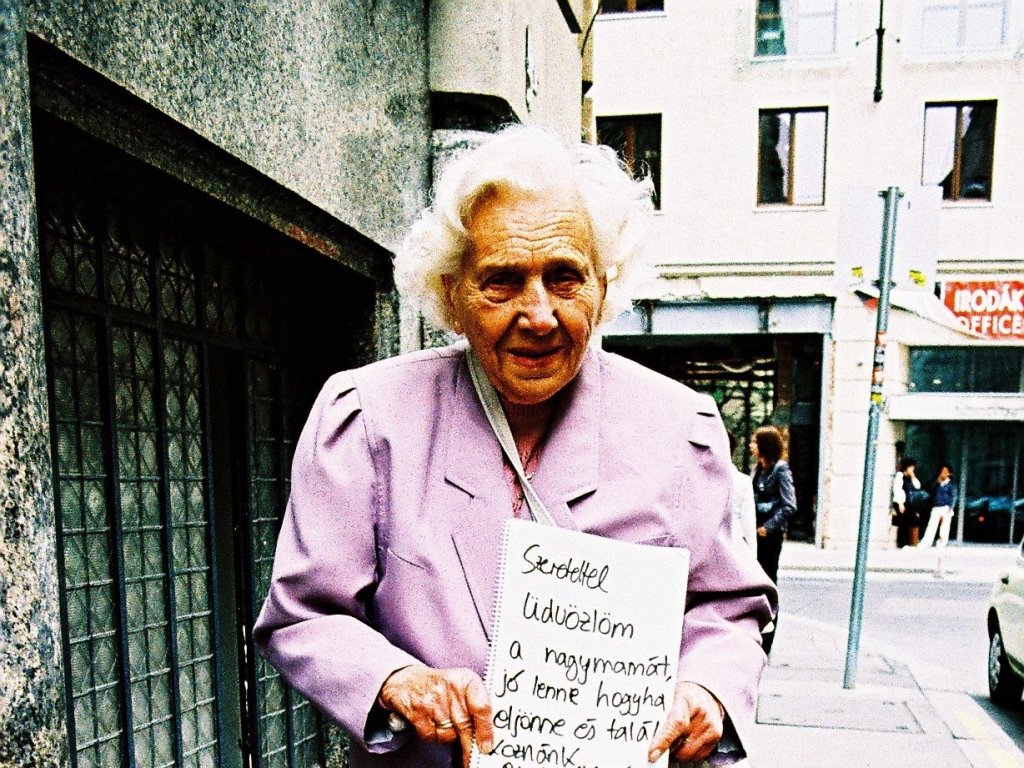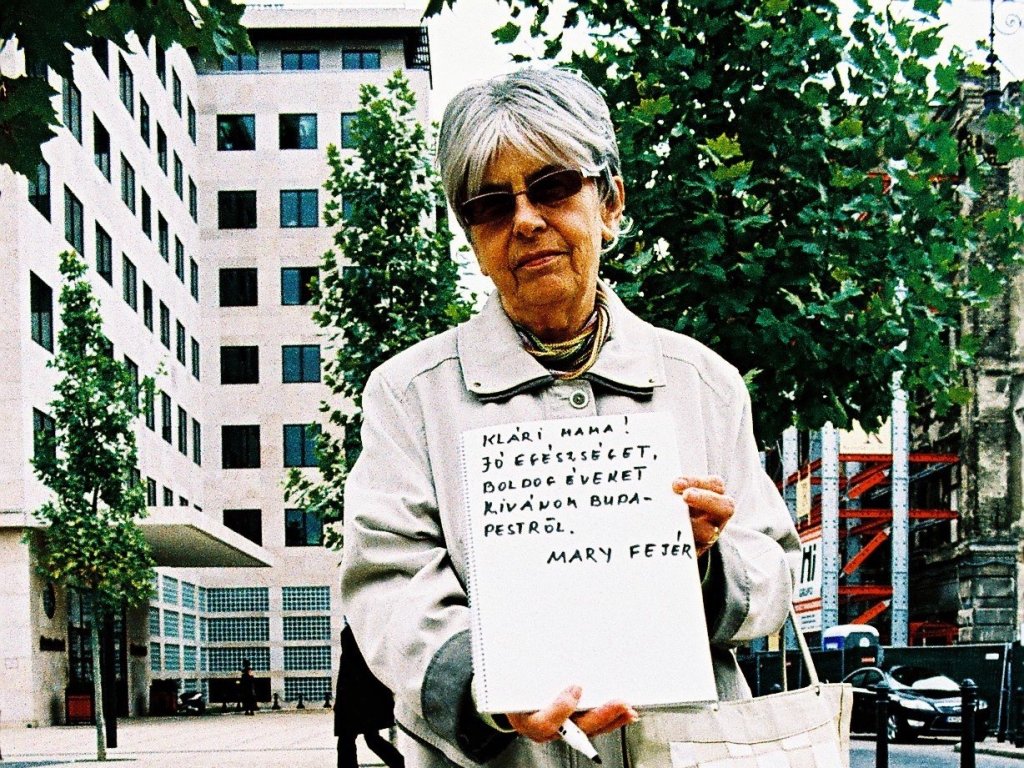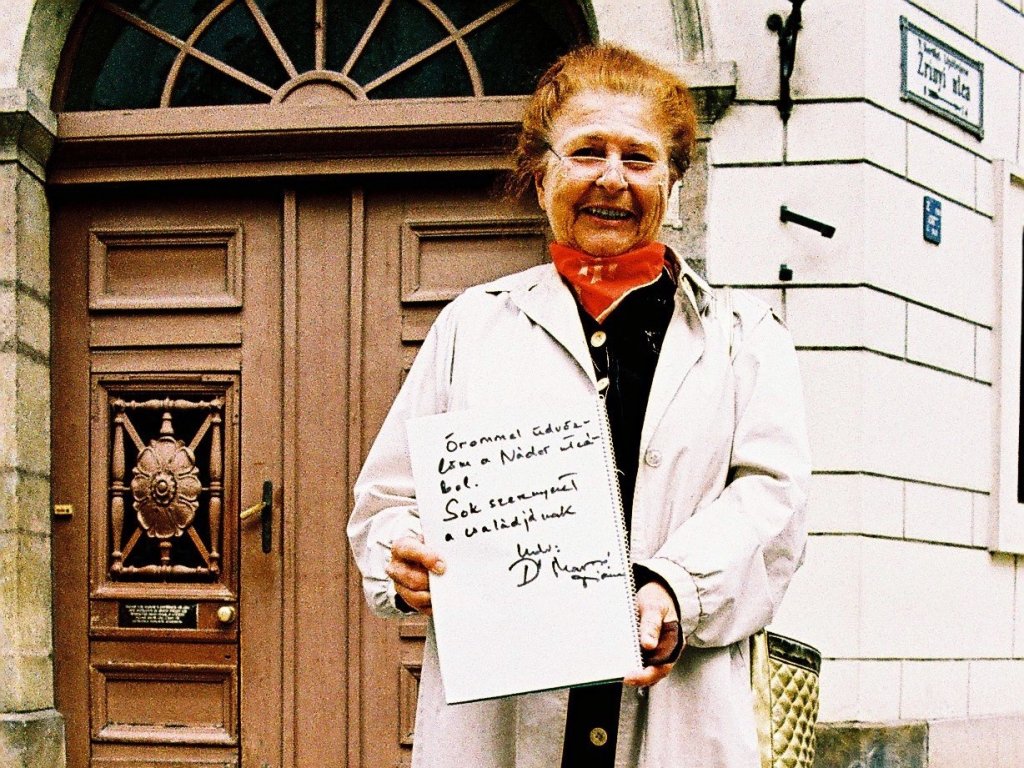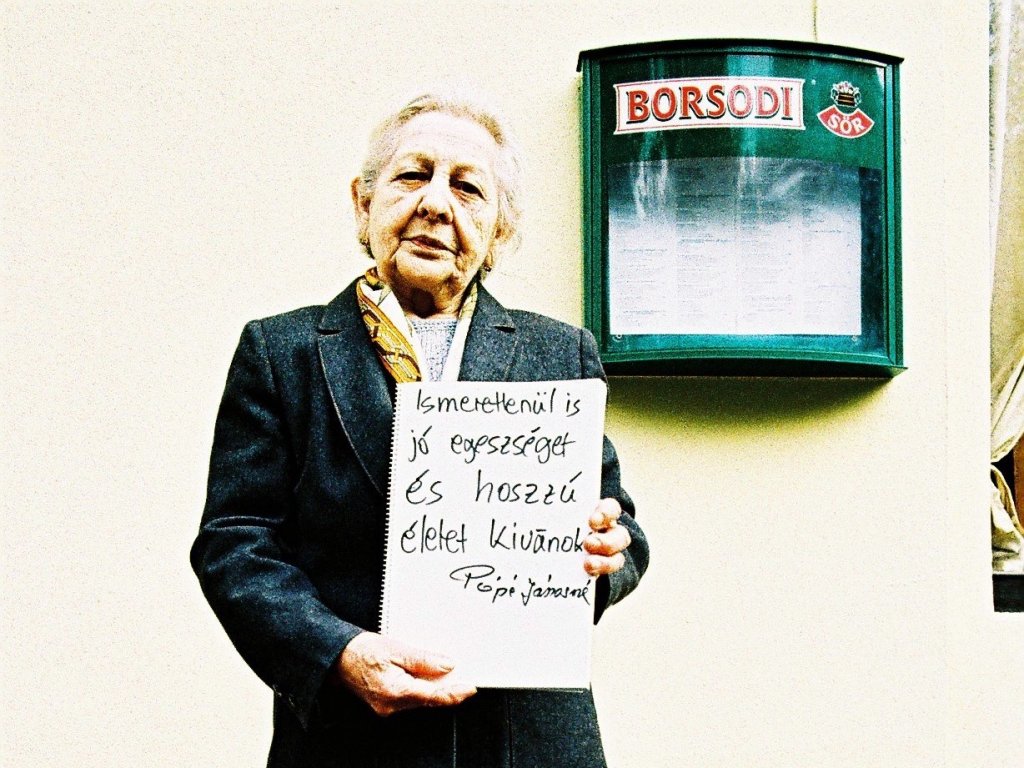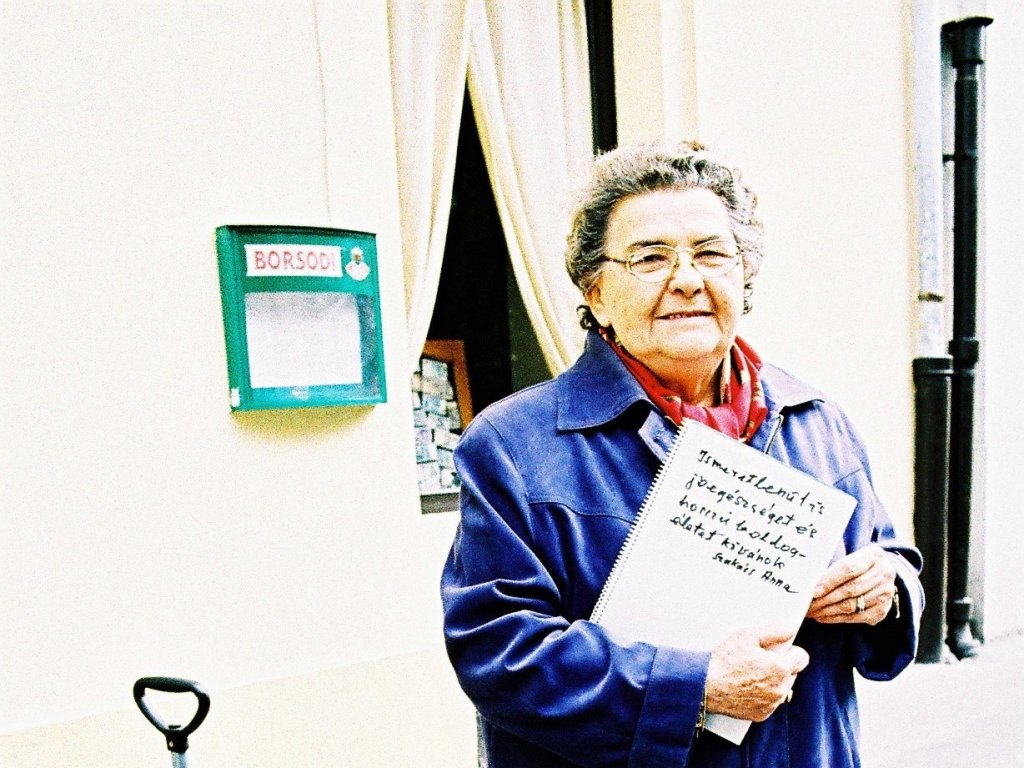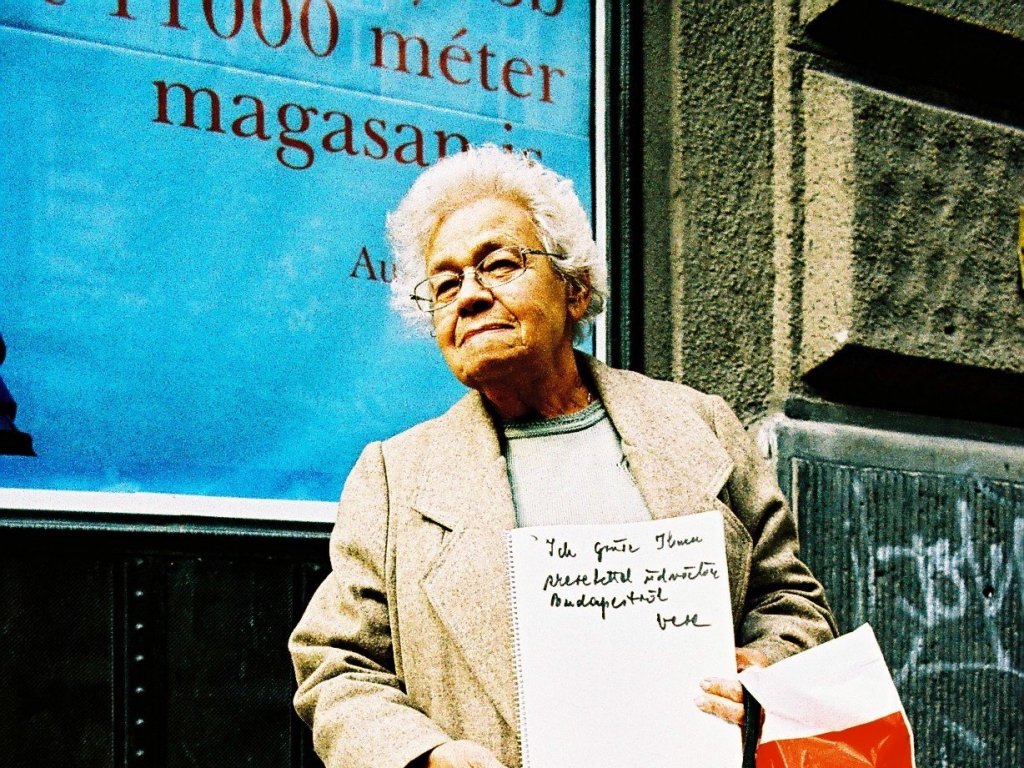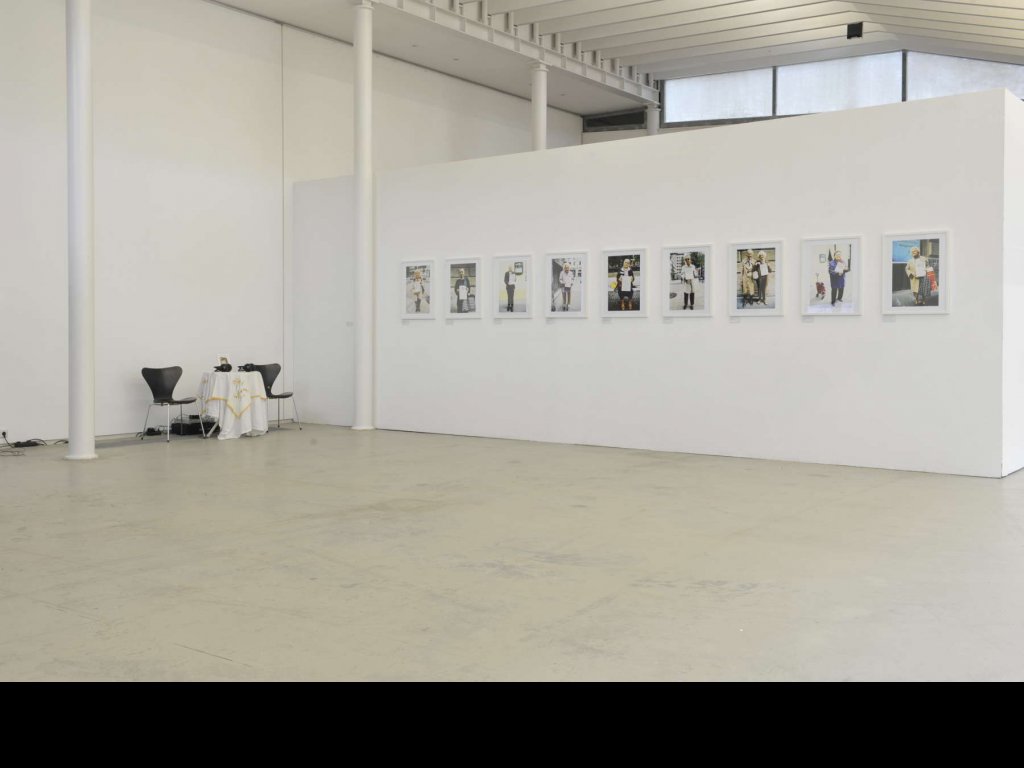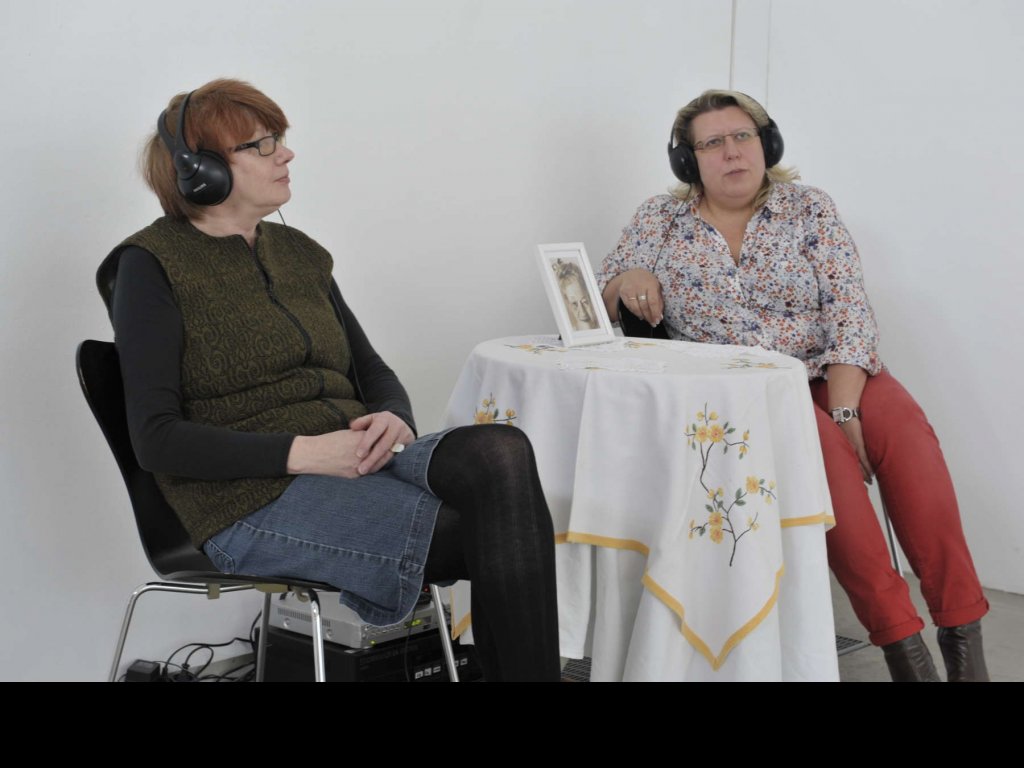Eine von 1685
Budapest / Zürich 2010
analogue photography
Nagyi Klari lived at 8 Soltan Utca in Budapest until May 1944. In June 1944 she was one of 1685 people who were aboard the Kasztner train. This train however, did not travel as promised to Spain, but to Bergen-Belsen. Shortly before the liberation of Bergen-Belsen, Nagyi Klari and the surviving 1670 transportees were transferred to Switzerland. Her husband, who had been earlier deported, never returned. Her mother, grandmother and further close relations were deported from Hungary and murdered in Auschwitz and Ravensbrück.
In her lifetime Nagyi Klari never left Switzerland again and from 1945 she was silent about what had happened. However in the last years, fractions of memories from the time before the war became crept into her everyday conversation, memories of the time when she strolled through the streets of Budapest with her husband, happy and in love. These spoken memories became the basis for a journey which led to 8 Soltan Utca, Budapest. These pieces of memories were recounted to aged passers-by in the street there, who were then asked to contact Nagyi Klari with a photo and written greeting. There were emotion filled moments, where the people being questioned began to share their own life stories, as well as those of others from the neighbourhood. Alongside the tears shed there was hearty laughter. For Hanukah, Nagyi Klari received a photo album with all the greetings from the Soltan Utca, and in return all the participants received a photo of Nagyi Klari.
A thousand six hundred and eighty fifth recounts the life story of a person who was a member of a group of 1685 people, and continues it. Fragmented recollections of the first generation were passed on to the third orally, and then returned to the first in the form of a written message, created at the location of the original memories.
Nagyi Klari, opening her Hanukah gift from Soltan Utca, reading aloud the messages contained therein, and commenting on them, can be heard over headphones.

